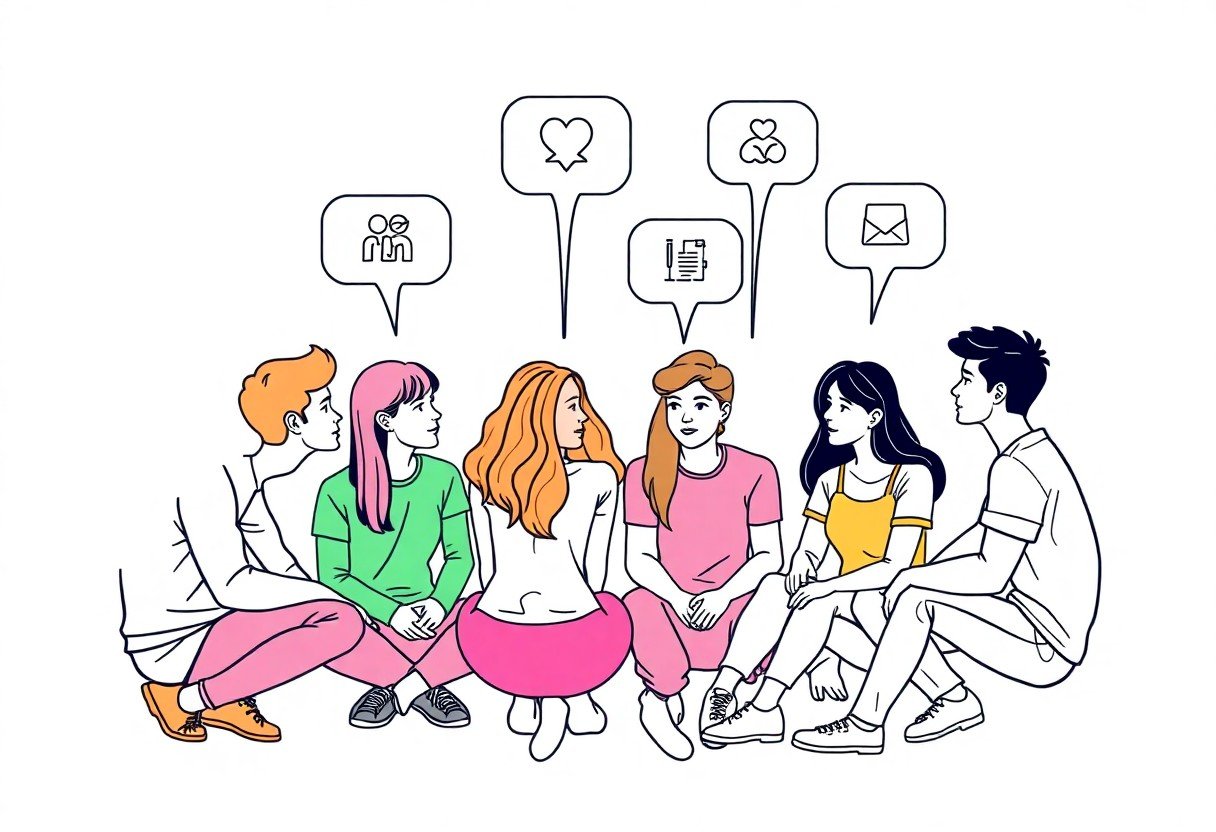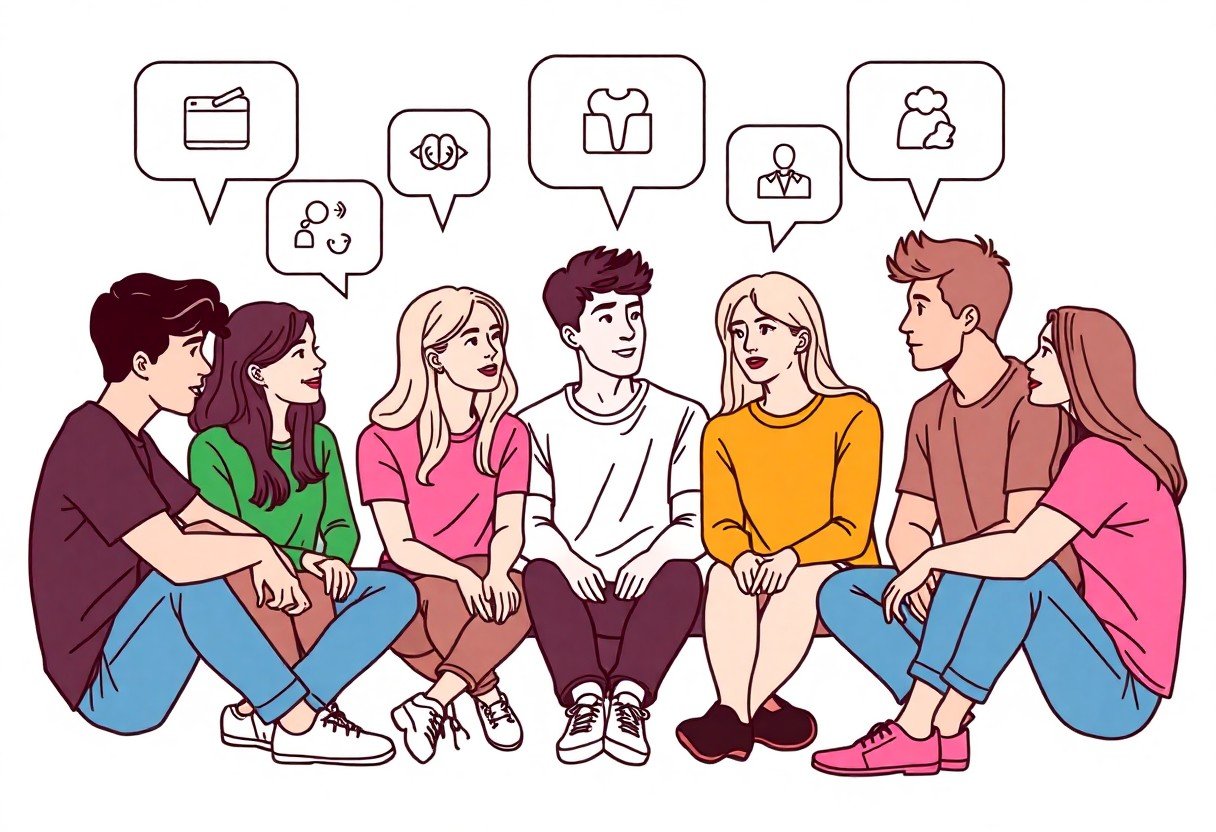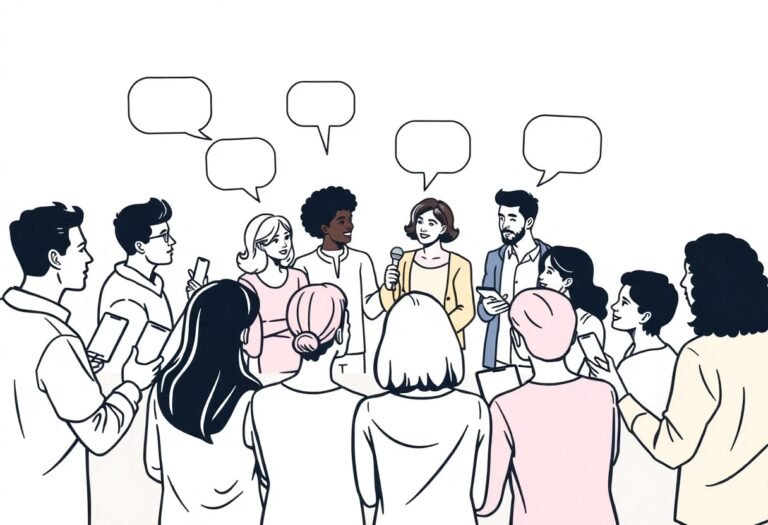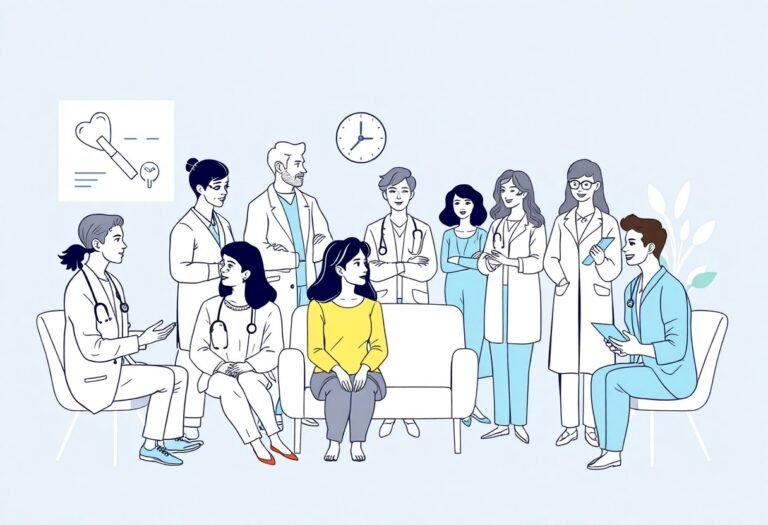Young Voices – Teens Talk About Mental Health
Teens Talk About Mental Health: There’s a growing movement among teenagers to openly discuss mental health, breaking the stigma surrounding it. In this blog post, you’ll discover insights from young voices as they share their experiences, struggles, and strategies in navigating the complexities of emotional well-being. By listening to their stories, you can better understand the significance of support systems and the positive impact of open dialogue. Join us as we explore the world of teen perspectives on mental health, empowering you to foster healthier conversations in your own life.
Teens Talk About Mental Health: Key Takeaways:
- Teen mental health is a growing concern, and open dialogue can help reduce stigma.
- Many teens express the need for greater access to mental health resources and support systems.
- Peer support plays a significant role in helping adolescents navigate their mental health challenges.
- Teens often seek advice from trusted adults or friends when facing mental health issues.
- Education on mental health can empower teens with better coping strategies and self-awareness.
Understanding Mental Health
To foster a healthier mindset, it’s imperative for you to understand what mental health entails. Mental health encompasses your emotional, psychological, and social well-being, impacting how you think, feel, and act. It also determines how you handle stress, relate to others, and make choices. Recognising that mental health is just as important as physical health can empower you to seek help and support when needed, ultimately enhancing your overall well-being.
Common Mental Health Issues Among Teens
Across various studies, it is evident that many teens face common mental health issues, including anxiety disorders, depression, and ADHD. These challenges can stem from a variety of sources, such as academic pressure, social media influence, and familial expectations. It’s important for you to acknowledge these issues, as understanding their prevalence can help you empathise with your peers and be more open about your own experiences.
Stigma Surrounding Mental Health
Any discussion about mental health often reveals a troubling stigma that can prevent you from seeking help. Many individuals view mental health issues as a sign of weakness, leading to misunderstanding and isolation. This stigma can deter teens from talking about their struggles or reaching out for support, ultimately worsening their condition.
But it’s vital to challenge this stigma as it can have serious consequences on your mental well-being. Being open and sharing your experiences helps normalise mental health discussions, allowing you and others to feel less isolated. The more that you and your peers advocate for mental health awareness, the more you contribute to creating an environment where seeking help is viewed positively. Dispel the myths surrounding mental health by encouraging honest conversations, promoting education, and demonstrating that asking for support is a strength, not a weakness.
Personal Experiences
Some teenagers are candid about their battles with mental health, sharing their struggles in schools, at home, and in social circles. These personal experiences reveal the complexities of daily life when dealing with anxiety, depression, or identity issues. The voices of youth emphasise the significance of creating a supportive environment where they can connect, share, and find understanding among peers.
Stories from Teens on Their Mental Health Journeys
Experiences differ widely among teens, but many find solace in sharing their stories. You may find that some have overcome challenges through therapy, while others may talk about the stigma they faced when seeking help. These narratives highlight the resilience of youth and the importance of speaking up to foster awareness and empathy.
Coping Mechanisms and Strategies
Mental health is profoundly impacted by the strategies you adopt to cope with life’s challenges. Different techniques resonate with various individuals, from mindfulness practices to talking to a trusted friend. Implementing these coping strategies can make a significant difference in your mental well-being.
And there are numerous strategies you can explore to enhance your mental well-being. Engaging in physical activities like running or dancing can boost your mood, while these creative outlets, such as writing or painting, allow for self-expression. Practising mindfulness and meditation can help ground you in the present moment, alleviating feelings of anxiety. Additionally, establishing a consistent routine helps mitigate stress and encourages a sense of stability. You should not hesitate to reach out to trusted friends or family when you need support, as these connections can foster a sense of belonging and understanding.
The Role of Support Systems
Despite the challenges that come with mental health issues, having a strong support system can significantly enhance your journey towards wellness. Friends, family, and community members play a crucial role in providing understanding, encouragement, and love. Their presence can help you feel less isolated and more empowered to face your struggles head-on.
Importance of Family and Friends
At times, your family and friends can be your strongest allies in overcoming mental health challenges. They can offer comfort, a listening ear, and valuable perspectives that help you navigate tough situations. Engaging with loved ones creates a sense of belonging and can contribute to improved emotional well-being, making it easier for you to share your feelings and experiences.
Professional Help: When and How to Seek It
Support from friends and family is invaluable, but professional help may also be necessary. If you find that your feelings are overwhelming or affecting your daily functioning, seeking a mental health professional is important. They can provide you with tools and strategies tailored to your specific needs and help you navigate your mental health challenges.
A therapist can help you identify when it’s time to seek professional support, ensuring that you’re equipped with an effective plan to address your mental health. If you experience signs of distress such as prolonged sadness, anxiety, or changes in behaviour, reaching out for help is a strong step. Don’t hesitate to seek a counsellor or psychologist, who can guide you through your challenges. It’s vital to recognise that prioritising your mental health through professional support can lead to significant improvements in your overall well-being and quality of life.
Social Media and Mental Health
Your relationship with social media can significantly influence your mental health. While these platforms offer opportunities for connection and expression, they can also create unrealistic comparisons and foster feelings of inadequacy. Understanding how to navigate the digital world is crucial for maintaining your mental well-being in an increasingly connected society.
The Impact of Social Media on Teen Mental Well-Being
An overwhelming number of studies suggest that the constant exposure to idealised lives and experiences on social media can lead to increased anxiety and depression among teens. When you compare yourself to others on these platforms, you may feel pressure to conform to certain standards, which can negatively impact your self-esteem and overall happiness.
Harnessing Social Media for Positive Change
Health campaigns and awareness initiatives on social media can serve as powerful tools for promoting mental health. By following accounts that share positive messages, you can foster an environment of support and encouragement. Engaging in online communities focused on mental wellness can help you connect with others who share your experiences, ultimately reinforcing a sense of belonging.
Media platforms can be transformed into spaces for support and growth rather than comparison. Engaging with content that promotes mental well-being, such as motivational stories or mental health resources, empowers you to take positive actions. By actively participating in online discussions about mental health, you can help destigmatise these issues and encourage others to seek help when needed. It’s important to curate your feed to reflect uplifting messages, ensuring that your social media experience contributes positively to your mental health.
Advocating for Change
Now, more than ever, young voices are leading the charge for change in mental health awareness and accessibility. By sharing their experiences and advocating for themselves, teens are fostering a supportive community that promotes understanding and empathy. Your participation in this movement can inspire others to join the conversation, encouraging a generation to break the stigma surrounding mental health and push for better policies and resources.
Empowering Teens to Speak Up
One of the most effective ways to create a supportive environment is by empowering teens to share their stories. By providing a platform for open dialogue, you can encourage your peers to express their feelings and seek help when needed. When young people speak up, they not only validate their own experiences but also inspire others to do the same, fostering a sense of unity within their community.
Initiatives and Programs Supporting Young Voices
One way to amplify your voice is to participate in initiatives and programs tailored for young people dealing with mental health challenges. Various organisations focus on equipping you with tools and resources, emphasising the importance of peer support and promoting awareness. These programs encourage you to be proactive in addressing mental health concerns and offer safe spaces for you to express your feelings.
The role of initiatives and programs supporting young voices is vital in creating a culture of openness. Organisations such as the Youth Mental Health Project and local community centres deliver workshops and resources that help you navigate your mental health journey. These empowering platforms not only promote awareness but also provide access to safe spaces where your thoughts and experiences matter. Engaging with these initiatives gives you the confidence to advocate for change and enhances your understanding of mental health resources available in your community.

Real Stories and Community Voices
Resources for Teens
After recognising the importance of addressing mental health, it’s vital to know where to find support and resources tailored to you. Many organisations, websites, and local services offer valuable help, whether you’re seeking immediate assistance or looking for ongoing support. Exploring these resources can empower you and foster a better understanding of mental health challenges and coping strategies.
Helplines and Support Groups
Across various platforms, you can find numerous helplines and support groups designed specifically for teens. These resources provide 24/7 assistance and a safe space to share your feelings with trained professionals or peers who understand what you’re going through. Connecting with others facing similar struggles can help reduce feelings of isolation and promote a sense of community.
Educational Materials and Workshops
For a deeper understanding of mental health, many organisations offer educational materials and workshops. These resources can help you learn about mental health conditions, effective coping strategies, and ways to promote emotional well-being. Participating in workshops can not only enhance your knowledge but also equip you with practical skills to handle challenges that may arise in your life.
Considering the various types of available educational materials and workshops can significantly impact your journey toward better mental health. You may find pamphlets, online courses, or community workshops that address topics ranging from stress management to mindfulness techniques. Engaging with these resources fosters a positive environment where you can develop a deeper awareness of your mental health, learn to advocate for yourself, and create a support system that encourages growth and resilience.
To wrap up
Now that you have a deeper understanding of the experiences and challenges teenagers face regarding mental health, it’s vital to recognise the importance of open dialogue. Engaging with your peers about your feelings can foster a supportive environment, encouraging you to seek help and share solutions. By prioritising mental health discussions, you empower yourself and others to navigate these challenges effectively, ensuring that no one feels alone in their struggles.
FAQ
Q: What is ‘Young Voices – Teens Talk About Mental Health’?
A: ‘Young Voices – Teens Talk About Mental Health’ is an initiative aimed at providing a platform for teens to discuss their mental health experiences openly. It encourages young individuals to share their stories, insights, and challenges regarding mental health, fostering a supportive community and reducing stigma associated with these topics.
Q: Who can participate in the discussions?
A: The initiative is designed for teenagers aged 13 to 19. Participants are encouraged to share their personal experiences or contribute to discussions about mental health topics in a safe and respectful environment. Parents, educators, and mental health professionals are also welcome to join as supportive listeners and facilitators.
Q: What types of mental health topics are covered?
A: The discussions cover a wide range of mental health topics, including anxiety, depression, stress management, coping strategies, self-esteem, social pressure, and the impact of social media on mental well-being. The program aims to address both common and less-discussed issues affecting teens today.
Q: How does this initiative help promote mental health awareness?
A: By providing a safe space for teens to share their experiences and thoughts, the initiative raises awareness about mental health issues within the teen community. It encourages open dialogue, which can lead to better understanding among peers. Additionally, it helps break down barriers that might prevent teens from seeking help or discussing their mental health.
Q: Are there any resources available for teens seeking help?
A: Yes, the initiative often collaborates with mental health organisations and professionals to provide resources such as hotlines, websites, and local support groups. Participants can access information on where to obtain guidance, counselling, and other mental health services, ensuring they have the necessary support outside of discussions.







